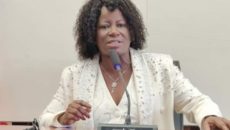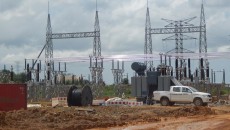When President George Weah announced that he was making tuition free at all public colleges and universities across the country, I joked with friends that perhaps parents of kindergarteners and nursery-aged children needed to get their children onto the streets to protest for free tuition. After all, Weah acknowledged that his decision was prompted by the University of Liberia students protesting an increase in fees.
The president’s tuition waiver initiative, from all appearances, was a knee-jerk response that flew in opposition to advice from local and international education experts, who emphasize strengthening lower levels of education before focusing on the tertiary level. Weah’s decision means that public education is tuition-free from grades 1-9 and at the tertiary level; however, students at the early childhood education and senior high levels must still pay tuition.
Moreover, the decision was not supported by any parts of the leaked versions of the Pro-Poor Agenda (While it has been almost three weeks since the government launched its development agenda, an official version has not yet been released to the public). In fact, the document notes, “To get the maximum return on investment in human capital, efforts should start in the early years of life.â€
Besides not being a decision supported by the government’s development agenda, there was no evidence that the government had properly evaluated the effects of the plan or determined how they would pay for it. Officials used Facebook and radio shows to give vague explanations of how they would pay for the move, asking the public to trust the government.
Regardless, the public is now aware of how their president makes decisions. On no other day was this clearer than on Monday, November 12, when Monrovia experienced at least three protests which brought all traffic to a slow grind.
In Jallah Town, residents fed up with going months without electricity blocked the crucial Jallah Town Road, the only other way to enter Central Monrovia from Congo Town besides Tubman Boulevard. Near the Ministry of Foreign Affairs, which hosts the president’s office, a group of drug abusers and car loaders commonly known as ‘zogos’ were trying to draw the president’s attention to their call for drug rehabilitation programs. Elsewhere, another group marched to demand the creation of a war crimes court.
Monrovia stood still. Distances that were previously covered in 20 minutes now took 3 hours. But some of the protestors were heard. That very day, residents of Jallah Town were connected, and electricity was flowing.
Three days later, residents of Paynesville’s Police Academy community took a page out of the Jallah Town playbook and disrupted traffic by setting up roadblocks to protest their prolonged lack of electricity. Their situation was resolved only after the Liberia Electricity Corporation promised to restore their power within nine days.
Perhaps Liberians do need to start protesting more frequently and more creatively, and in manners that inconvenience the political elite. What better way than to block them from getting to various places, when even their fast-moving convoys cannot find their way on crowded streets?
Red Light traders fed up with the large buildup of trash in their market should tow large amounts of trash from Paynesville and dump it in front of Weah’s Ministry of Foreign Affairs office as part of their protest.
Drivers unhappy with perpetually dysfunctional traffic lights should amass at the Catholic Junction intersection during the heart of the morning rush hour, holding stop signs to protest the country’s lack of attention to creating safer intersections.
After all, in this age of knee-jerk reactions to cries from the public, the squeakiest of wheels will certainly get the grease, instead of a systematic way of dealing with the deficiencies in delivering public services.
Featured photo by Jefferson Krua



